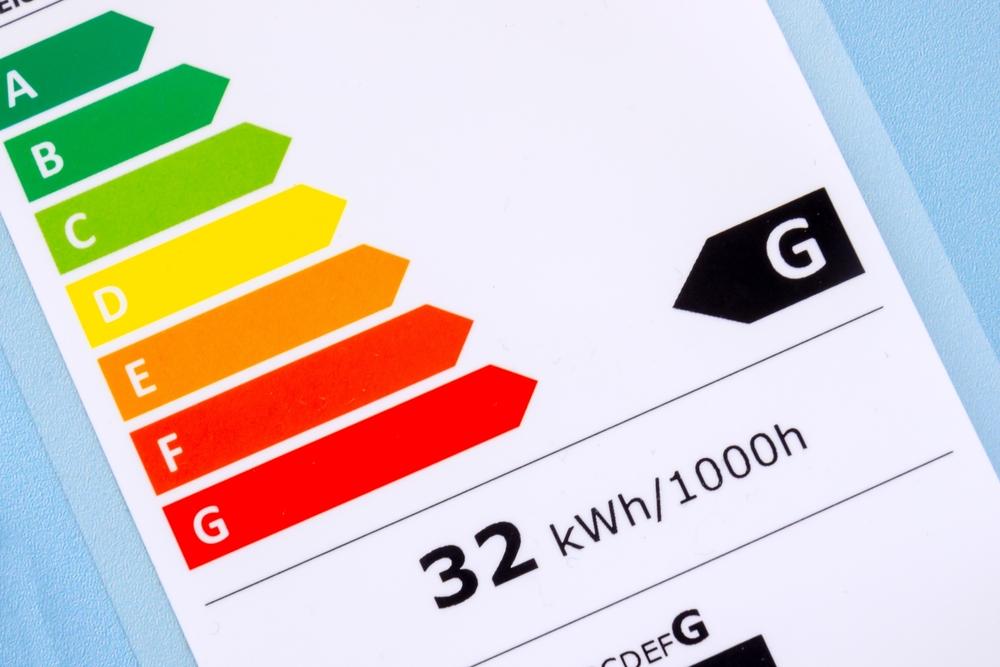In the dynamic world of modern business, where environmental consciousness and cost-efficiency reign supreme, one vital solution stands tall in the pursuit of sustainability: energy benchmarking. As our planet faces the ever-pressing challenges of climate change, and governments worldwide tighten their grip on energy regulations, organizations are seeking innovative ways to reduce their carbon footprint and align with stringent compliance mandates. This is where energy benchmarking emerges as a game-changing force, empowering businesses to not only meet regulatory requirements but also unlock untapped potential for optimizing energy performance.
In this all-encompassing guide, we embark on a thrilling journey through the fascinating realm of energy benchmarking. We’ll unravel its inner workings, grasp its profound significance in regulatory compliance, and uncover a treasure trove of benefits that await those who embrace this revolutionary approach. So, buckle up as we explore the captivating world of energy benchmarking and embark on a quest to shape a greener, more sustainable future for generations to come.
Understanding Energy Benchmarking
Energy benchmarking is a process that involves measuring, analyzing, and comparing a building’s or facility’s energy performance against industry standards, best practices, or past performance. It allows organizations to assess their energy consumption and identify areas where improvements can be made. Key metrics and parameters such as energy consumption per square foot, energy intensity, and greenhouse gas emissions are used for benchmarking purposes. The benefits of energy benchmarking are multi-faceted, ranging from cost savings and reduced environmental impact to enhanced transparency and sustainability reporting.
Benchmarking provides businesses with valuable insights into their energy usage patterns, enabling them to identify areas of high consumption and inefficiencies. By comparing their performance with similar entities or industry standards, companies can determine their relative position in terms of energy efficiency. Armed with this information, organizations can set realistic energy reduction targets and develop effective strategies to achieve them.
The Role of Energy Benchmarking in Regulatory Compliance
In the realm of energy management, regulatory compliance is of paramount importance. Governments and environmental agencies worldwide are enacting laws and regulations to combat climate change and promote energy efficiency. Energy benchmarking plays a pivotal role in supporting businesses’ efforts to meet these regulatory requirements.
One of the primary ways energy benchmarking contributes to regulatory compliance is by providing transparency in energy usage and performance. Regulatory bodies often require businesses to disclose their energy consumption and emissions data. Energy benchmarking offers a standardized and objective approach to measure and report on these metrics, ensuring accurate and comparable information. By demonstrating their commitment to energy efficiency through benchmarking, companies can navigate complex regulatory landscapes and meet reporting obligations.

Moreover, energy benchmarking helps businesses align with sustainability goals set by governments and industry associations. By regularly monitoring and reporting on their energy performance, companies can show their dedication to reducing their carbon footprint and mitigating environmental impact. This alignment with sustainable practices not only boosts the organization’s reputation but also opens up opportunities for access to green incentives and grants provided by governments.
In some regions, regulatory compliance might mandate energy efficiency improvements over time. In such cases, energy benchmarking becomes an essential tool for tracking progress towards meeting these requirements. By continuously monitoring their energy performance and benchmarking it against targets, businesses can stay on track with their compliance objectives.
Energy Benchmarking Process
To harness the full potential of energy benchmarking for regulatory compliance, businesses need to establish a systematic approach. The process typically involves several steps:
- Data Collection and Management: Accurate data collection is the foundation of effective benchmarking. Companies must gather energy consumption data from various sources, including utility bills and energy management systems. Adopting automated data management systems can streamline the process and ensure data accuracy and integrity.
- Choosing Appropriate Metrics and KPIs: Selecting the right key performance indicators (KPIs) and metrics is crucial for relevant and meaningful benchmarking. Factors such as building size, industry type, and energy end-uses must be considered to ensure accurate comparisons.
- Normalization and Adjustments for Accurate Comparison: To create fair and accurate benchmarks, companies must account for external factors that can influence energy consumption. These factors may include weather conditions, occupancy rates, and production levels. Normalization allows for a more reliable comparison of energy performance across different periods or facilities.
- Best Practices in Benchmarking Implementation: Successful benchmarking implementation involves adopting industry best practices and adhering to recognized standards. Engaging with energy efficiency experts and benchmarking organizations can provide valuable insights and ensure the credibility of the process.
Benefits of Regulatory Compliance through Energy Benchmarking
- Transparency in Energy Usage and Performance: Energy benchmarking promotes transparency by revealing energy consumption patterns and inefficiencies. Transparent reporting enhances accountability and builds trust with stakeholders, including customers, investors, and regulators.
- Identifying Inefficiencies and Potential Energy Savings: Benchmarking allows businesses to pinpoint areas of excessive energy consumption and identify opportunities for improvement. By addressing inefficiencies, companies can significantly reduce operating costs and enhance their bottom line.
- Demonstrating Corporate Social Responsibility (CSR): Incorporating energy benchmarking as part of CSR initiatives showcases a company’s commitment to sustainable practices. This commitment is increasingly important for attracting environmentally conscious consumers and investors.
- Meeting Reporting and Disclosure Obligations: Many regulatory frameworks require companies to report on their energy consumption and emissions. Energy benchmarking simplifies the reporting process, ensuring businesses comply with these obligations efficiently.
- Avoiding Penalties and Fines: Failure to comply with energy-related regulations can lead to significant fines and penalties. Energy benchmarking equips companies with the necessary data to maintain compliance and avoid potential financial repercussions.
Challenges in Energy Benchmarking for Regulatory Compliance
While energy benchmarking offers numerous benefits, businesses may encounter challenges during the implementation process. These challenges include:
- Data Availability and Quality Issues: Gathering accurate and comprehensive energy data can be a daunting task, especially for large organizations with multiple facilities. Ensuring data quality and completeness is crucial for reliable benchmarking results.
- Variability in Energy Consumption Patterns: Different industries and buildings have varying energy consumption patterns, making it challenging to find directly comparable benchmarks. Overcoming this challenge involves identifying suitable industry-specific benchmarks or collaborating with peers in the same sector.
- Understanding Industry-Specific Metrics and Benchmarks: Certain industries may have unique energy consumption metrics that differ from standard benchmarks. Businesses must invest time and effort in understanding these industry-specific benchmarks to ensure accurate comparisons.
- Addressing Confidentiality and Privacy Concerns: Sharing energy consumption data raises confidentiality and privacy concerns for businesses. Implementing secure data-sharing protocols and anonymization methods is essential to alleviate these concerns.
Overcoming Challenges and Implementing Effective Benchmarking Strategies

- Leveraging Technology and Data Analytics: Technology solutions, such as smart meters, IoT devices, and data analytics platforms, can streamline data collection and analysis, significantly simplifying the benchmarking process.
- Collaborating with Industry Peers and Experts: Engaging with industry peers and energy efficiency experts can provide valuable insights and guidance throughout the benchmarking journey. Collaborative efforts enable businesses to overcome challenges collectively.
- Integrating Benchmarking into Corporate Sustainability Initiatives: Integrating energy benchmarking into broader sustainability strategies fosters a culture of continuous improvement and ensures long-term commitment to energy efficiency.
Future of Energy Benchmarking and Regulatory Compliance
As the world’s focus on sustainability intensifies, the importance of energy benchmarking in regulatory compliance will only grow. Expectations of businesses to disclose energy performance and commit to reducing their environmental impact will drive innovation and the development of more sophisticated benchmarking tools. Government incentives and support will likely play a significant role in encouraging widespread adoption of energy benchmarking practices.
The future of energy benchmarking is also tied to advancements in technology. As data collection and analysis become more seamless and sophisticated, benchmarking processes will become more efficient and yield more accurate results. Additionally, artificial intelligence and machine learning can play a role in identifying energy-saving opportunities and predicting future energy consumption patterns.
Conclusion
In this enlightening journey through the realm of energy benchmarking, we stand at the brink of transformation and innovation. Empowered by this potent tool, businesses are poised to lead the charge towards a greener, more sustainable tomorrow. Energy benchmarking becomes the beacon of hope, guiding organizations towards transparency, accountability, and a profound sense of responsibility to the environment and society.
The benefits of energy benchmarking are vast and far-reaching. From identifying inefficiencies and cost savings to showcasing corporate social responsibility and avoiding penalties, it represents a united effort to create a more sustainable future. As the world’s focus on sustainability intensifies, the future of energy benchmarking shines bright with endless possibilities—powered by technology, collaboration, and unwavering determination to make a difference. Together, we forge a path towards a world where sustainability and profitability go hand in hand, scripting a remarkable tale of progress and stewardship for generations to come.
Discover Vertpro.com, your trusted source for expert Commercial Energy Audit and Benchmark Compliance consultancy. As an award-winning Energy Benchmarking and Audit Consultancy, we simplify energy compliance with innovative SaaS technology-based solutions. From Energy Benchmarking to Energy Audits/RCx Plus and a cutting-edge Construction Marketplace, our services cater to Building Owners & Property Managers nationwide, ensuring adherence to over 50 Energy Benchmarking & Energy Efficiency Laws. Unlock cost savings and streamline your energy management efforts with Vertpro.com today.

